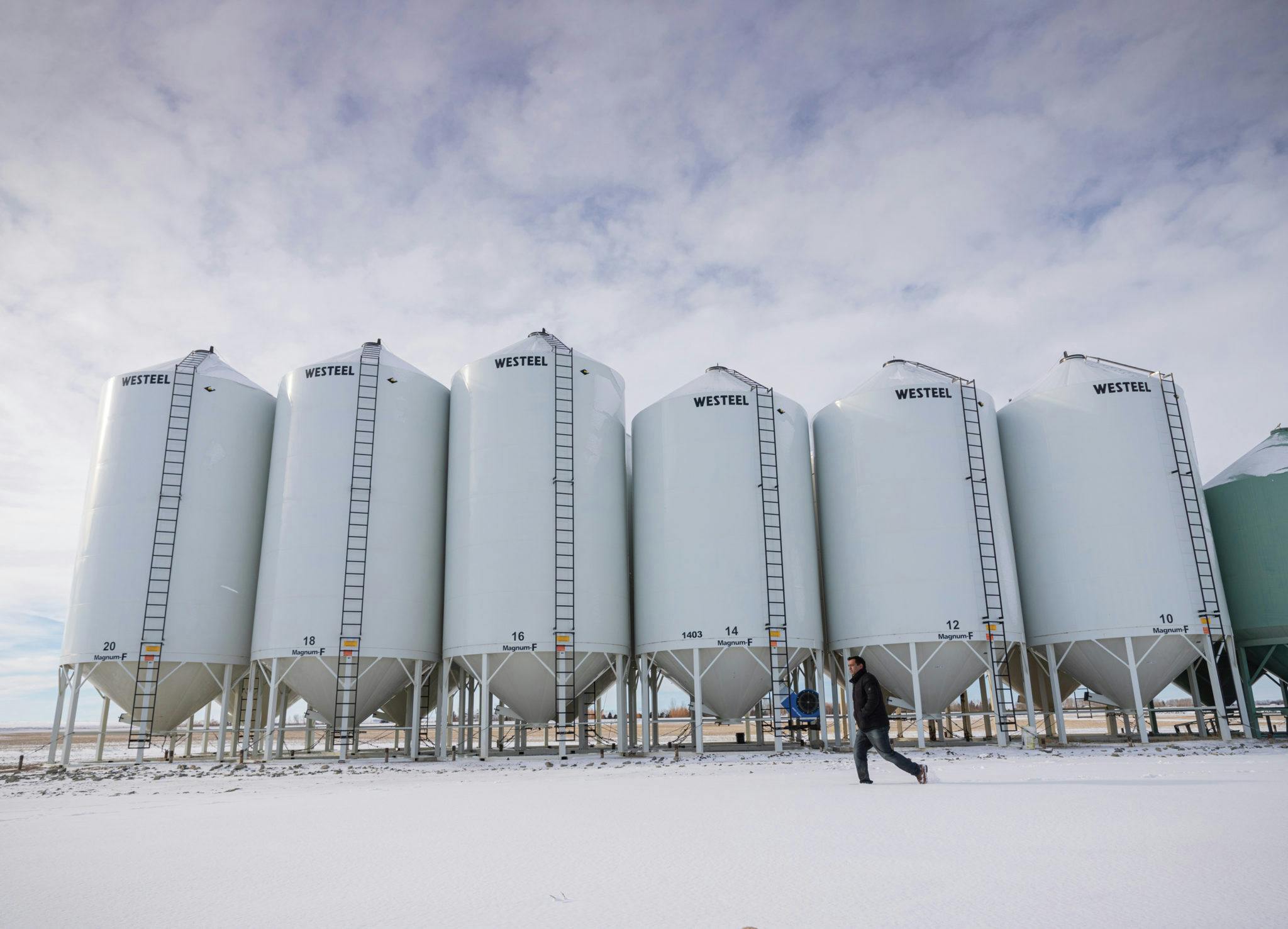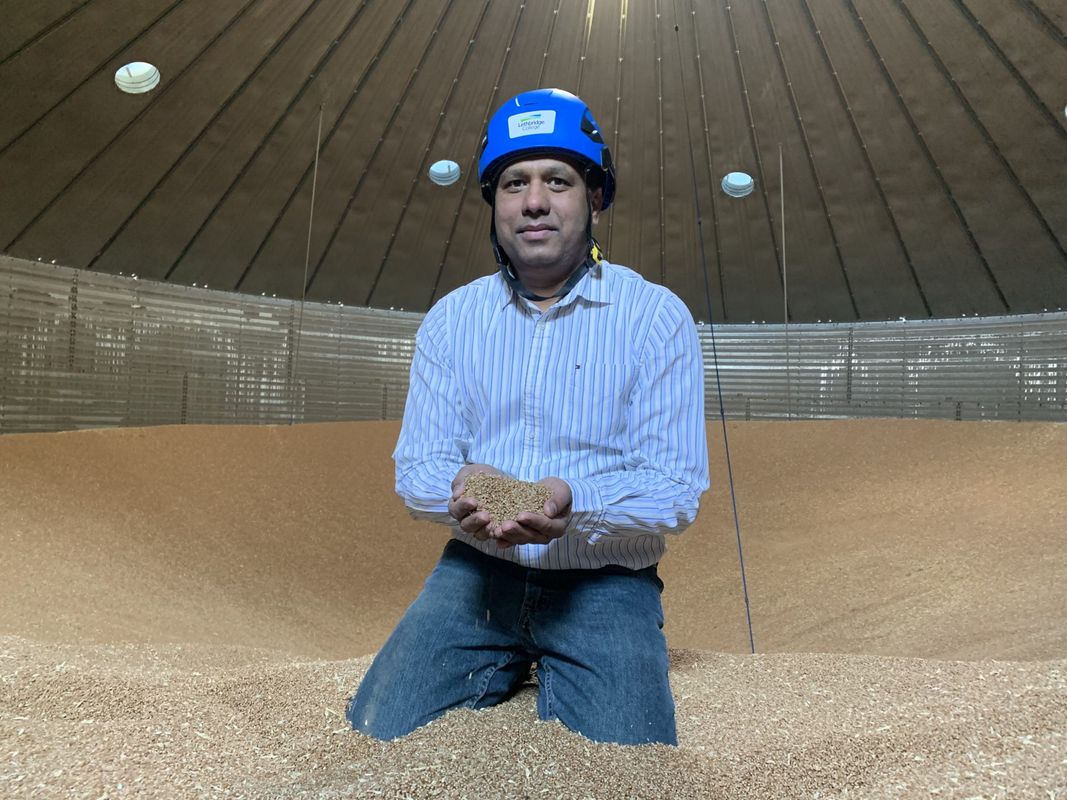Why is this research important for Alberta ag?
Alberta farmers produced nearly 31% of Canadian wheat, 29% canola, 48% barley, and 20% oats in 2018. Despite such strong crop production, Alberta grain producers have suffered significant production and economic losses due to adverse weather condition during recent harvests.
TEAMALBERTA estimated the total value of unharvested acres in 2019 at $778M. Such huge risks to the crops can be minimized by harvesting crops as soon as they reach physiological maturity and grain can be artificially dried to safe storage moisture levels. However, inefficient drying can lead to grain spoilage, quality degradation, and excessive energy consumption resulting in increased drying cost and high shrink due to over-drying. Therefore, growers should be provided with tools to make informed decisions and select appropriate drying strategies to minimize spoilage risk, ensure timely and uniform drying with optimum quality, and high energy efficiency.
In-bin natural air drying (with optional low temperature heater) and high temperature drying and combination drying (using high temperature drying followed by in-bin natural air drying) will be investigated to develop wheat storage and handling guidelines for Alberta climatic conditions for increased energy efficiency, timely and uniform drying and optimum milling and baking quality of dried wheat.
What benefits can producers expect from this research?
The outcome of this project with risk-based grain management strategies will yield substantial long-term economic, environmental, and social benefits to Alberta producers and wheat industry and further enhance Alberta’s reputation as an exporter of high-quality grain to global wheat markets. Improved and energy efficient drying will ensure increased profitability of farmers and the grain industry by improving grain storage through quality optimization, moisture control, energy savings, reduced drying cost, and prevention of spoilage.
How will these research findings reach producers on-farm?
The research outcome of this detailed investigation will provide the latest technology based grain storage and handling guidelines through appropriate selection of wheat drying strategies. Project will lead in development of key research document in a simplified form (e.g., Handbook, Fact Sheets) which growers can use as a reference guide.
A web-based tool will be developed to assist growers in selecting risk-based appropriate grain management recommendations that suit individual grower’s need based on their crop storage and handling capacity and marketing options.
Industry partner, OPIsystems Inc., a market leader in grain management technology with vast presence in Alberta (and Western Canada) will provide access to their producer clients for trials. Large amount of research data can be accessed by producers through their participation in this project.
Funded in part by the Government of Canada under the Canadian Agricultural Partnership, a federal-provincial-territorial initiative.





